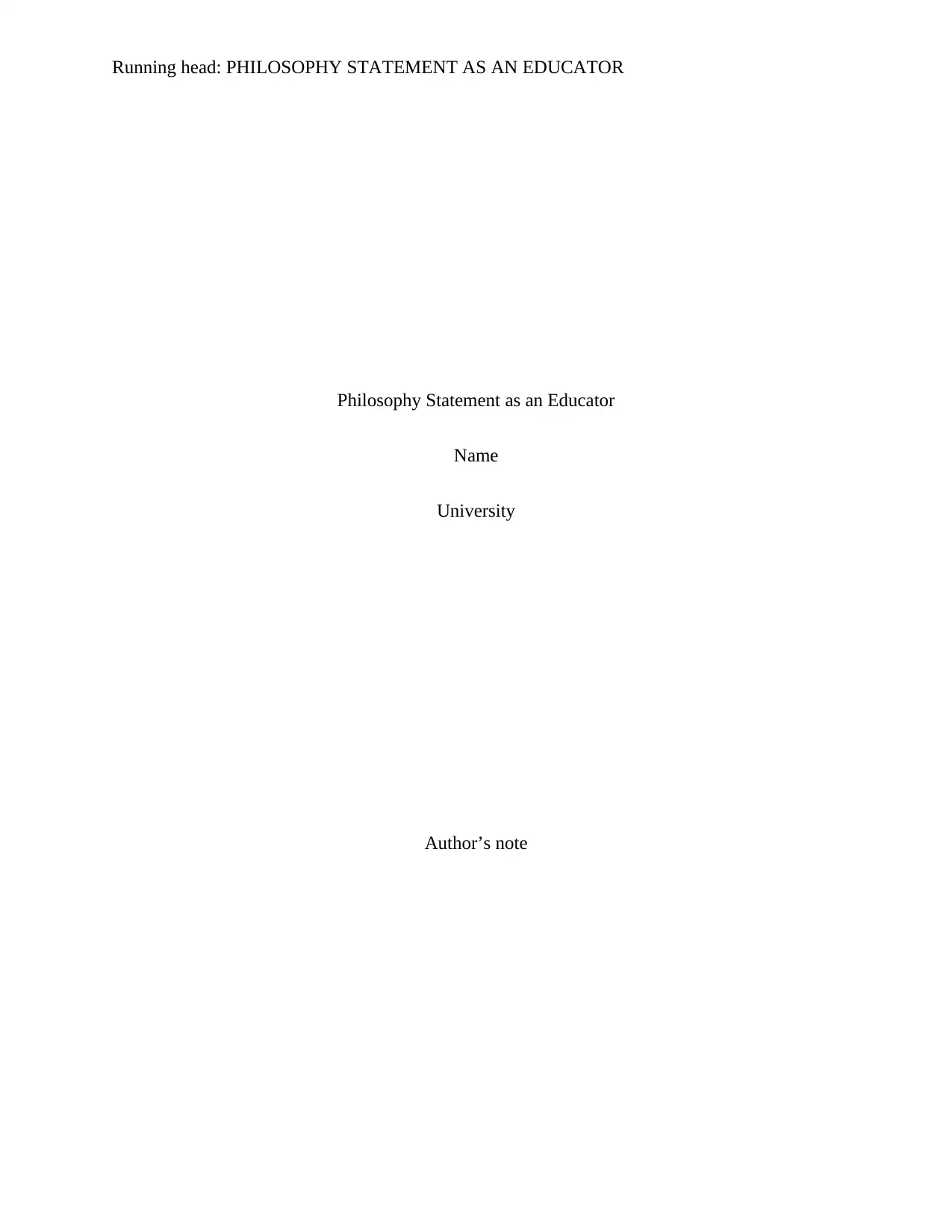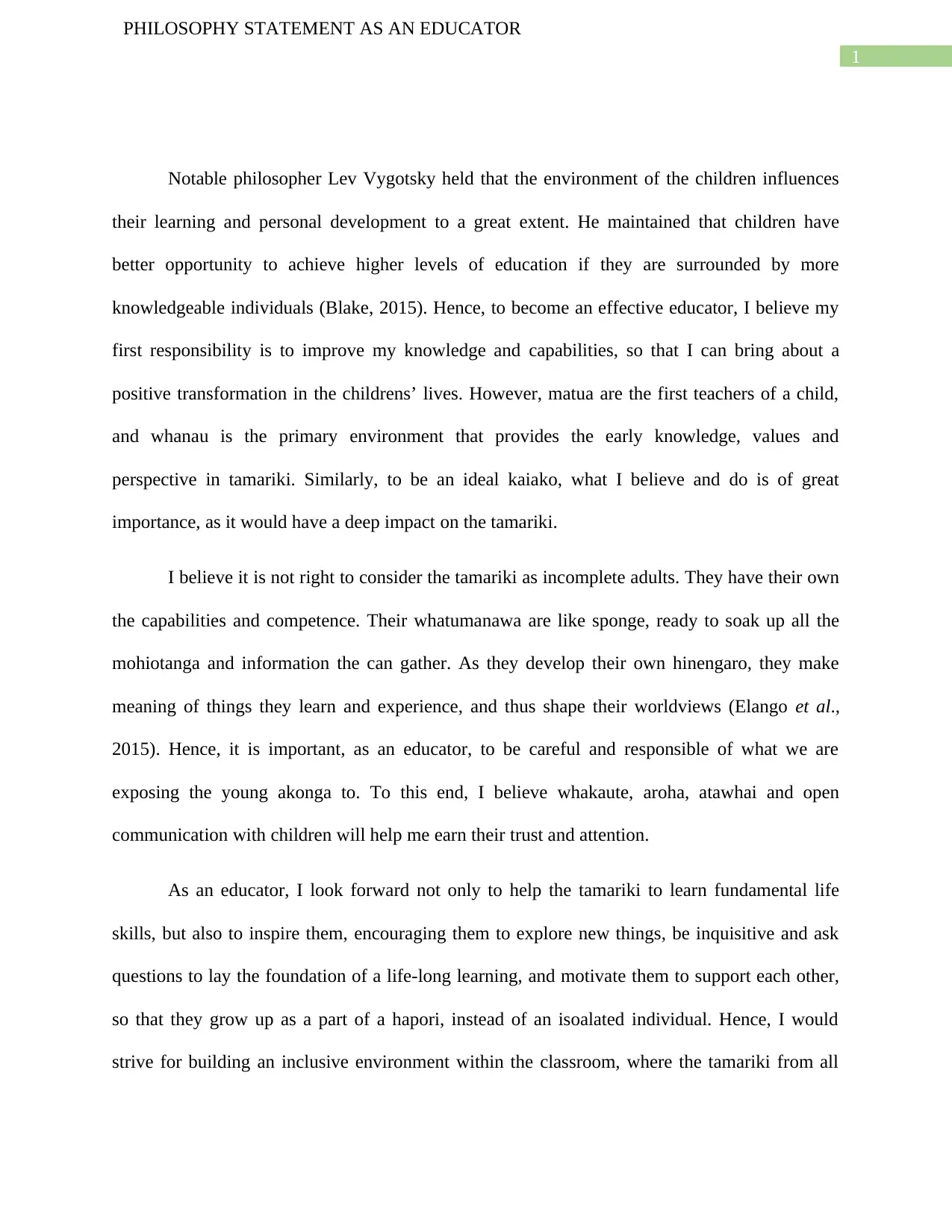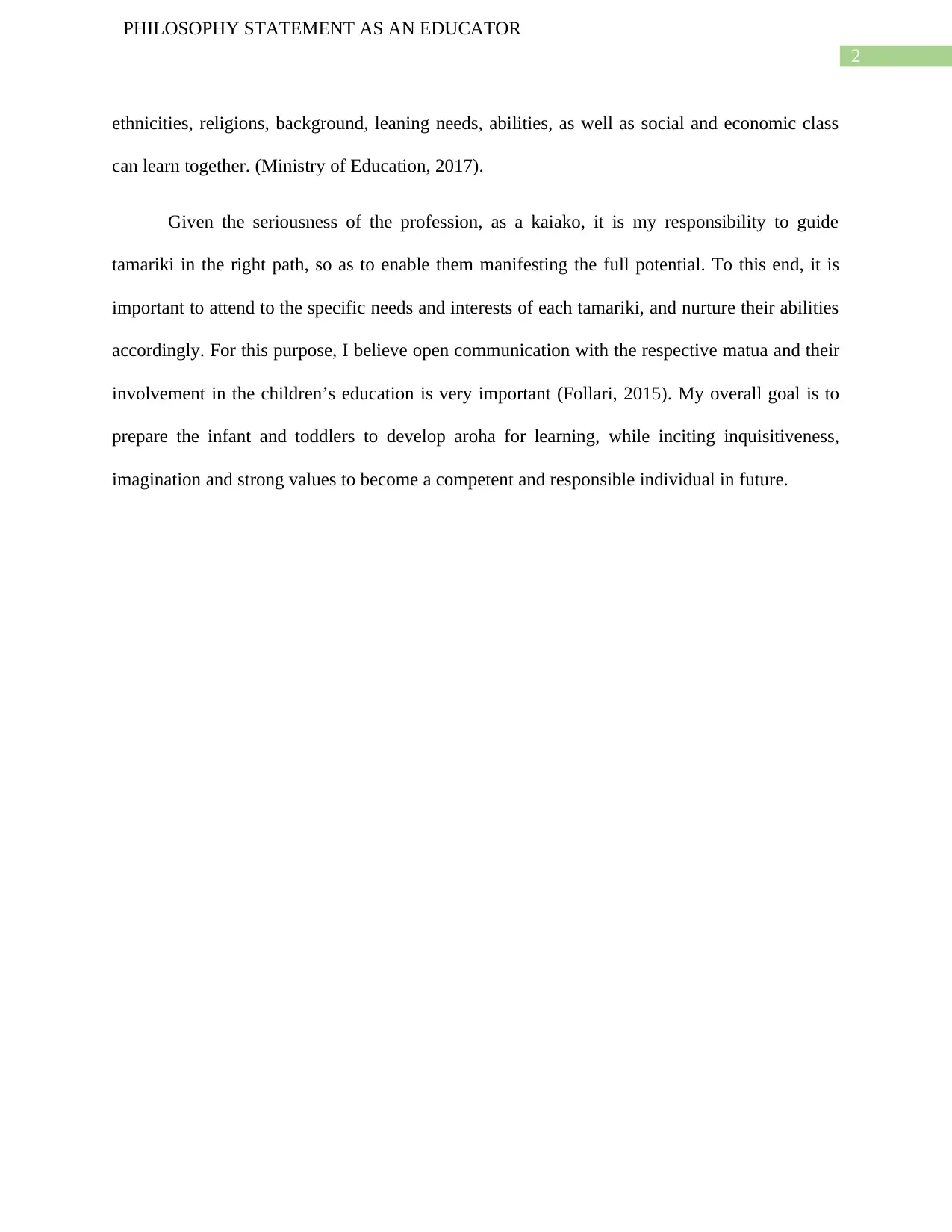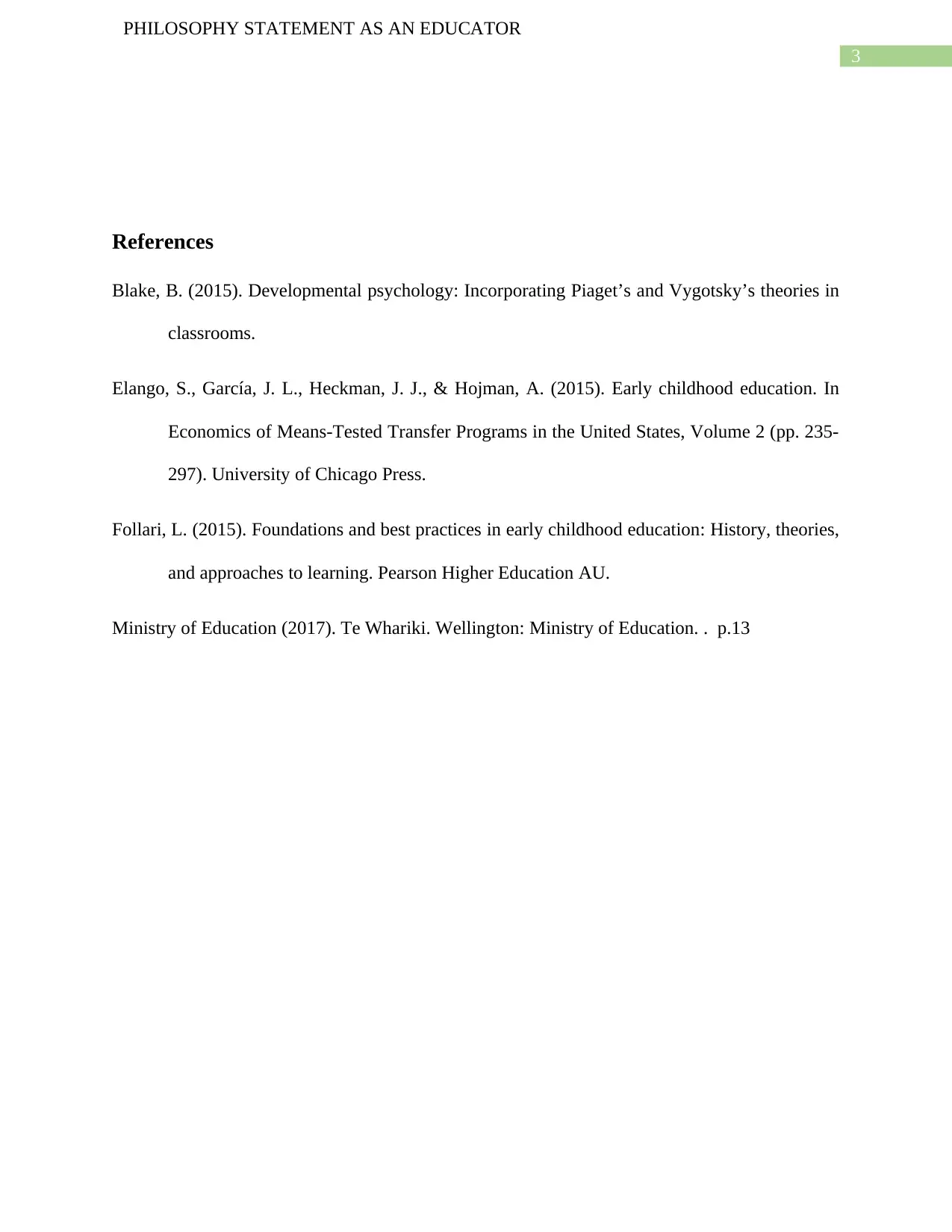Philosophy Statement: Early Childhood Education, University Assignment
VerifiedAdded on 2022/08/16
|4
|662
|24
Homework Assignment
AI Summary
This philosophy statement, authored by Kate Hawke, outlines the author's beliefs and approach to early childhood education. Inspired by Lev Vygotsky's emphasis on the environment's influence, the statement emphasizes the importance of educators improving their knowledge and creating a nurturing environment (whanau). The author views children as competent individuals with unique capabilities, whose whatumanawa are ready to absorb knowledge. The statement stresses the need for educators to build trust through whakaute, aroha, atawhai, and open communication, aiming to inspire inquisitiveness, lifelong learning, and support among tamariki. The goal is to create an inclusive classroom that welcomes all students, irrespective of their backgrounds, fostering a sense of hapori. The author aims to prepare infants and toddlers, nurturing their abilities, and involving parents in their children's education, while fostering a love of learning and strong values.
1 out of 4











![[object Object]](/_next/static/media/star-bottom.7253800d.svg)